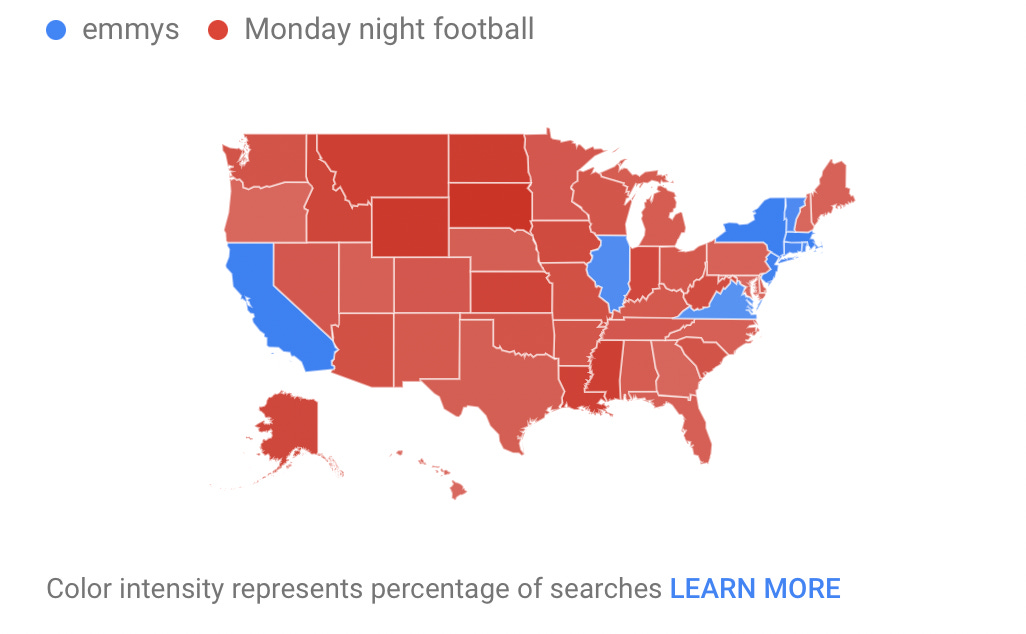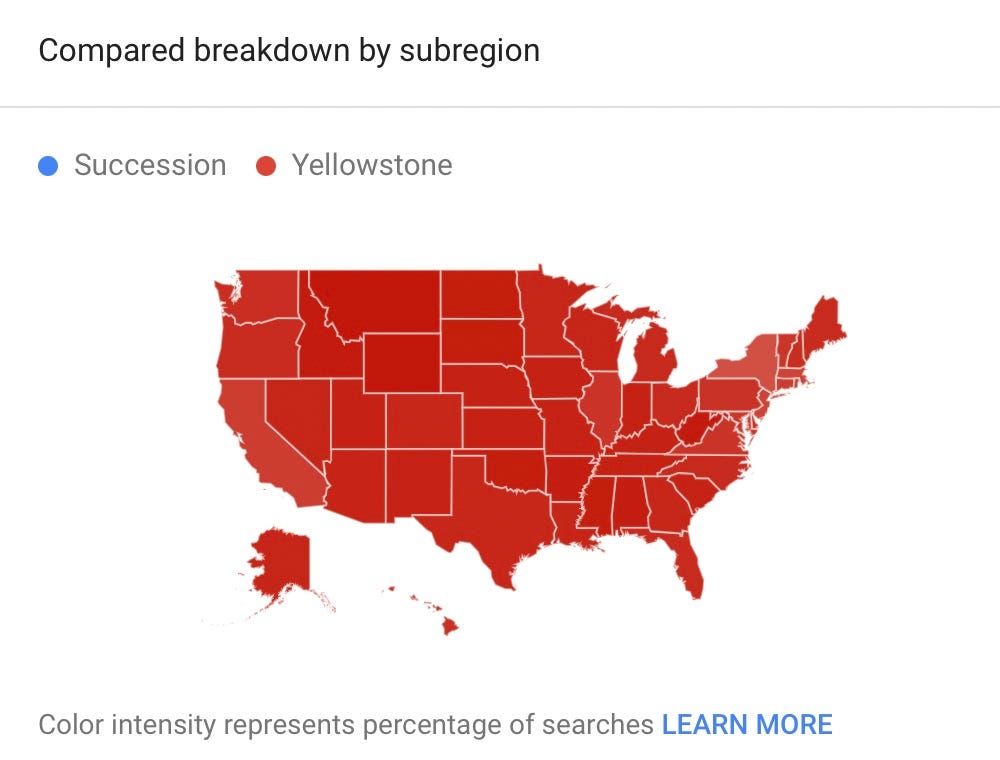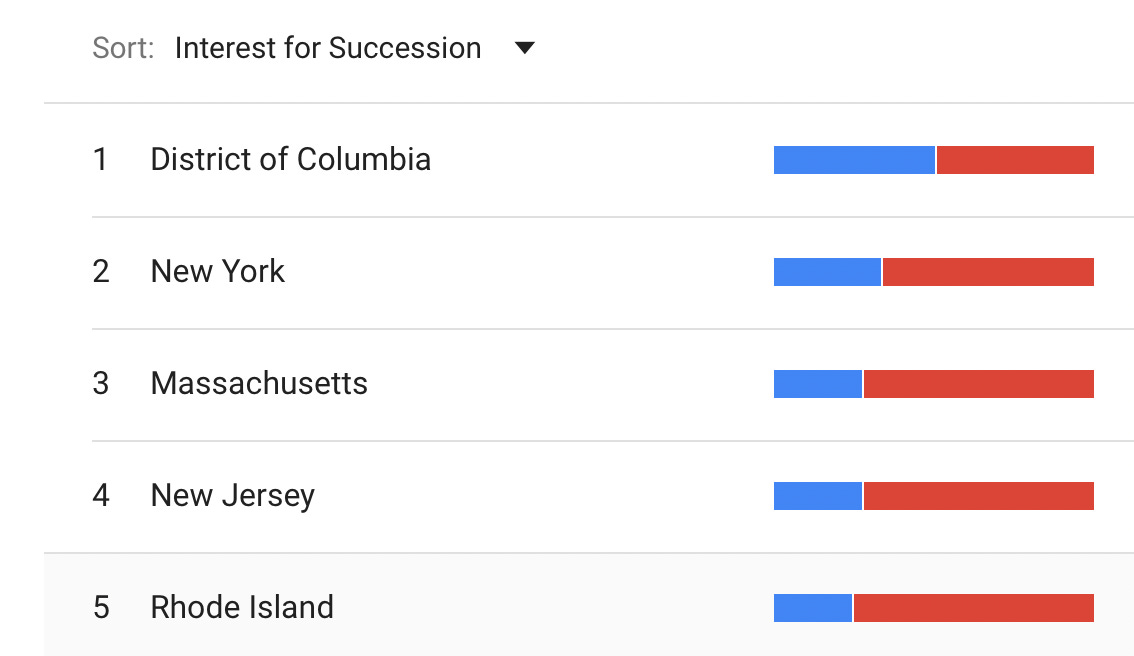Rushfield's Emmys: Who's This For?
Waking up to layoffs as Hollywood's bubble gets smaller

So you want an Emmys show, you got an Emmys show.
There was nothing obviously broken about the show, above and beyond what is broken about all Emmys shows and awards shows these days.
The winners were the same cluster of Emmy winners with all the happy additions (White Lotus) and limitations of Emmydom. Literally repeating the two big awards and many of its stars might strike some as... self-defeating for an awards show, but such are the Emmys.
The host was fine. The presenters were fine. Some bits were moderately funny. A couple surprise winners with soaring emotional speeches checked off the “inspirational” boxes, with nice moments acknowledging Hollywood’s herky-jerky march towards inclusion.
There was no obvious disaster, no slap-heard-round-the-world, with much of the point of watching these awards shows these days about sitting on the edge of your seat and being there when the terrible thing happens. But no presenter turned into a bat and sucked the blood of his executives. The host didn't come out in military fatigues and order the audience to defend every inch of Stalingrad down to the last drop of blood.
It remains one of life's enduring mysteries that in the Platinum Age of Television, as it was referred to last night, the Television Academy with the entire braintrust of television at its disposal, can't figure out how to produce a couple hours of entertaining television. But such is life.
And even with HBO raking in the most victories, cuts must still be made. The Great Consolidation of Entertainment 2022 can’t be stopped. The news this morning:
Anyway, back to the show. Let's call it a replacement-level Emmys show; no catastrophes and no great breakthrough.
Which gives us the opportunity to ask: who needs any of this?
And the question I keep offering — are these awards shows now doing more harm than good?
Is the spectacle of Hollywood congratulating itself an endearing one anymore? Particularly in the case of the TV Academy, congratulating itself for the acheivements of a very narrow slice of the whole medium.
Another map to ponder: Google Trends from the last 12 months reflecting the volume of searches for top TV series Yellowstone (snubbed from the awards) vs. last night’s big winner, Succession. 👇
BONUS: Look at the proportions even among the so-called coastal elites:
The problem seems to be that the culture at large has all but dropped the aspirational model that was the key to stardom and glamour for circa the last 100 years or so — creating stars and remote, bigger-than-life figures to be idolized at their feet, and their triumphs and indulgences celebrated as victories for all their fans.
As Evita sang it:
Ride on my train all my people
And when its your turn to die you'll remember
They fired those cannons, sang lamentations
Not just for Eva, for Argentina
Not just for Eva, for everybody.
So it was, but we've taken a turn into a new age of stardom. Whether it will last, where it will go — who knows? But notice has been served that the public no longer finds the aspirational model charming or cute.
Which for an awards show that has become almost entirely a parade of acting trophies, should be concerning.
In this cantankerous age when humanity drowns in “content” at its every moment, the demand is that stars be not just relatable, but indistinguishable from the people in their lives; that their output interacts with their fans’ real lives, all day long, every day.
That may be the extreme end of stardom in the TikTok age, but it's the general direction where all this is headed. And these nights of Hollywood gathering in its finery to slap each other on the back at some glorious banquet was irrelevant to people's lives a few years ago; now, it seems remote and hostile.
RELATED: The American Viewer series explores Hollywood’s blind spots around politics, religion, sex and money onscreen, and how the market for buzzy, prestige TV shows and films is much, much smaller than you think.
If there were a valuable mission there — if, say, the Emmys cared at all about shining light on the craft of production, then you could call the plummeting ratings results a noble failure. But if you're attempting to just fluff up stars for the public, and failing at doing that, then what’s it all for?
Again, it could've been far worse. But everywhere I looked last night outside of the immediate Hollywood bubble, this show barely even sat in the shadow of Monday Night Football.
Given that across the board, this whole awards show thing is not suffering a systematic failure, there's got to be some other model here — some other way you can have a night honoring achievement in television which doesn't feel like occupants of a luxurious little bubble celebrating themselves for their own benefit.
For the most part, the show is just ignored. It could be worse and probably will be.







The Emmys have been a masturbatory event for over a decade. Americans don't care and they have not for a long time. They like watching shows that they enjoy. Ratings used to help media companies keep score. In my past life working at America's #1 Network, we focused on viewership as our measurement of success, not awards (which was helpful because our shows tended not to win them ;). We were acutely aware that American viewers don't have the time or interest in what a particular body of critics, celebrities, or trade press say about anything. Streaming clouded the measurement picture, allowing walled garden platforms to grade their own work and perpetuate the false promise of endless growth and unlimited resources. Award shows as we know them are a huge waste of time and money. Do they do damage beyond the fiduciary waste? If nothing else they are a lame diversion for all involved ... time and energy that could have been spent doing something that mattered.
How many people actually watch Lizzo’s series?